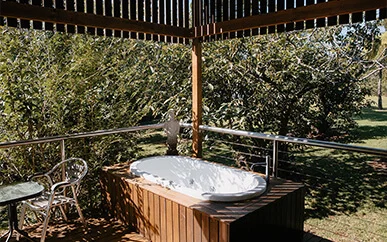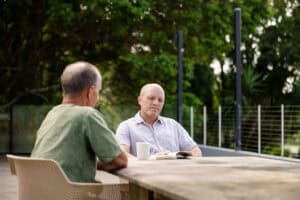Post-traumatic stress disorder (PTSD) is a treatable anxiety disorder that affects around one million Australians each year. When someone develops PTSD, memories of traumatic events interfere with their ability to function. Episodes of fear and intense anxiety may be triggered by memories such as death, serious injury, sexual violence, living in a war zone, torture or natural disasters. However, there are natural treatment options such as therapy and counselling that can help people who suffer from PTSD.
Although most people will experience a harmful or traumatic event in their life, it is only a small minority who develop PTSD. Some of the main symptoms of PTSD include:
- Re-living the experience through memories, nightmares or flashbacks
- An overarching negative mood
- An increased ‘fight or flight’ fear response to certain stimuli that could represent a sign of danger (either physical or environmental).
It is incredibly common for combat veterans to experience PTSD symptoms, as they have lived through violent experiences that may affect the way their brain responds to distress.
Holistic Approach
PTSD is a chronic condition that can have a highly negative impact on sufferers, including on their relationships and families. However, with the right holistic and psychological support, it is treatable. A holistic approach to PTSD treatment is incredibly important. It allows the sufferer to repair both their body and mind to help them live a happier, healthier life.
There are a number of natural therapies that can be used to treat the effects of PTSD. Let’s take a look at some of them here.
Therapy and Counselling
Although many patients report increased distress in their initial talk therapy sessions, one study found that talking about their trauma resulted in 86 per cent of participants showing improvement in their PTSD symptoms.
Cognitive behavioural therapy aims to address the emotional and behavioural thought patterns associated with PTSD. And it can equip the patient with some coping mechanisms to help them function better in daily life. These mechanisms include increasing their self awareness so they can understand how trauma affects their thoughts and feelings, training patients to better access their ‘emotional brain’ (as many PTSD sufferers can feel ‘numb’ to their feelings) and helping them regain a sense of control over their life.
Adopting a Healthy Lifestyle
Having a healthy lifestyle is another natural way to ease the distressing symptoms of PTSD. Taking time out of your schedule to relax is important. You can use relaxation techniques like mindfulness, deep breathing, massage or yoga to activate your body’s natural relaxation response. Eating a healthy diet full of fresh fruits and vegetables, whole grains and lean protein will also help keep your mind clear.
Omega-3s have been found to play a vital role in the emotional health of the brain, so incorporating foods like flax seeds, walnuts and fatty fish like salmon into your diet is a good option. Limiting processed food, fried food, starchy carbohydrates and excess sugar will also keep mood swings and sugar crashes to a minimum.
Get Enough Rest
You always feel great after a proper night of deep, restful sleep. You should aim for anywhere between seven to nine hours of sleep a night, depending on your activity levels and age. It’s a good idea to put together a relaxing bedtime ritual like listening to some calming music, having a shower and reading something light and funny. Switching off the screens after 9 pm is also a wise move, as blue light has been found to interfere with circadian rhythms and sleep patterns.
Although it may be tempting, avoid self-medicating with alcohol and drugs. Substance abuse will only increase irritability, depression and anxiety in the long run, and could put your recovery back many steps.
Heal Your Adrenal Glands
The adrenal glands generate our natural stress response, otherwise known as the ‘fight or flight’ response. These hormones include the stress hormones adrenaline and noradrenaline, as well as cortisol. They are central to much of the emotional and mental experience of PTSD. The stress response is the link between the brain and body, where a stressful thought or memory will have a physical impact, causing the body to release hormones that cause anxiety symptoms like panic attacks or irritability. If the adrenals are overstimulated, then the brain’s ability to function is subsequently affected.
Restoring a healthier hormone balance can make you feel more relaxed during the day, as well as help you get to sleep better. There are a variety of supplements that can assist with this, including the herb rhodiola rosea, which has been used for centuries as a tool for rebalancing stressed adrenal glands. Following a diet like the Adrenal Fatigue Diet may also assist with getting your adrenal glands back on track.
Receive the PTSD Specialist Support that you need, to Recover
At Palladium Private, our approach to treating PTSD is different. We address your issue with a holistic approach, to ensure you’re relieved of your symptoms as soon as possible, and equipped to handle problems that may arise in the future.
Within our peaceful surroundings, you’ll be able to recover from your traumatic experience with the help of our qualified therapists, passionate chefs, personal trainers, yoga teachers and massage therapists.
Contact us at Palladium Private today for a free consultation and to learn how we can help.



